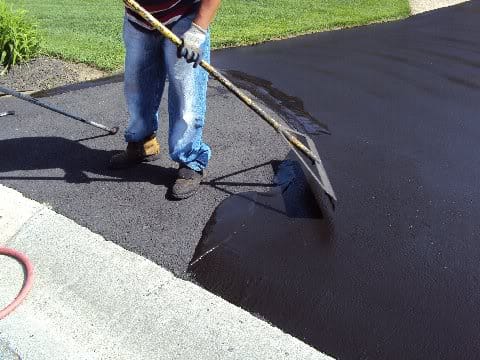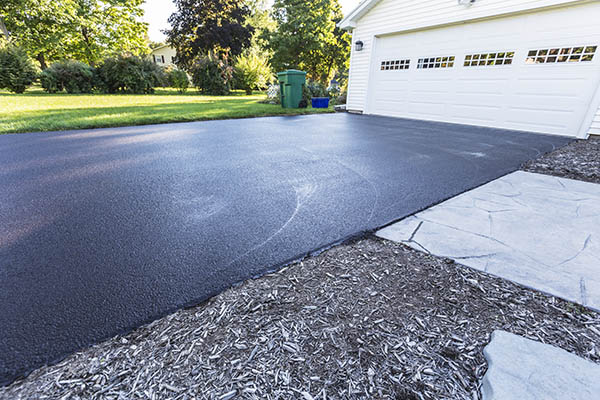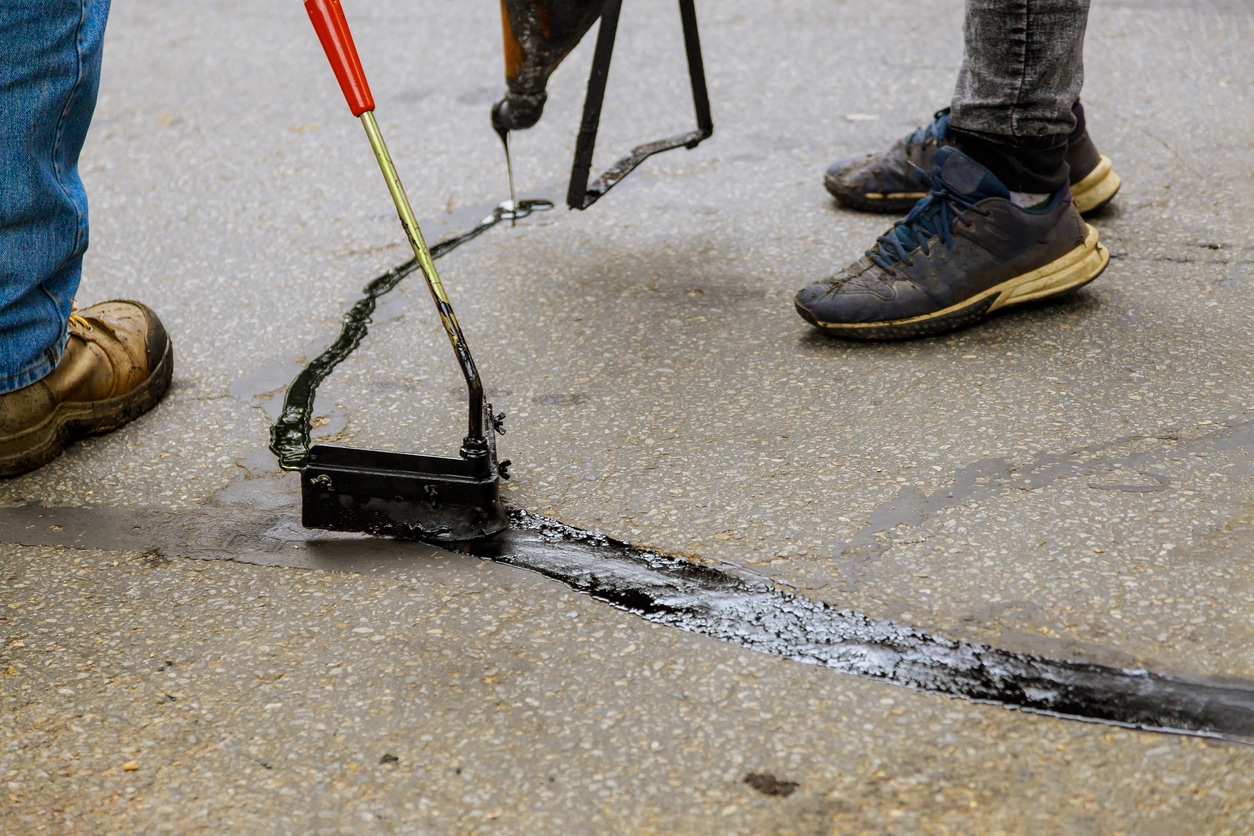Discover the Power of Business Car Park Paving and Asphalt Sealing
Discover the Power of Business Car Park Paving and Asphalt Sealing
Blog Article
Warm Mix Asphalt: A Sustainable Solution for Pavement
Hot Mix Asphalt (HMA) has actually become a leading sustainable choice for pavement solutions, offering a myriad of ingenious innovations and environmental advantages. Its capacity to reuse products and minimize power usage provides an engaging instance for its adoption in roadway building and construction jobs. The long-lasting performance and resilience of HMA make it a preferred option for framework advancement. As the demand for environment-friendly building techniques grows, discovering the nuances of HMA's sustainability can give important insights into the future of sidewalk services.
Environmental Advantages of Hot Mix Asphalt

In Addition, Hot Mix Asphalt helps to alleviate city warmth island impacts. Its dark color takes in sunshine, lowering the amount of warmth mirrored back right into the ambience contrasted to lighter-colored pavements. This can decrease ambient temperatures in metropolitan areas, decreasing the need for cooling and inevitably reducing power intake.
Furthermore, Hot Mix Asphalt adds to enhanced stormwater management. Its permeable nature allows water to penetrate the pavement and recharge groundwater supplies, decreasing overflow and the threat of flooding. These environmental advantages make Warm Mix Asphalt a lasting option for leading highways and roads.
Energy Efficiency in HMA Production
Is energy efficiency a vital consider the production of Warm Mix Asphalt (HMA)? Absolutely. Energy plays a considerable function in the manufacturing of HMA, impacting both cost and ecological sustainability. One essential element of power performance in HMA manufacturing is making use of cozy mix asphalt (WMA) innovations (hot mix asphalt). WMA permits for the mixing and placement of asphalt at reduced temperatures contrasted to traditional warm mix asphalt, resulting in lowered energy usage during production. This process not just lowers fuel use yet also decreases greenhouse gas exhausts, making it an extra environmentally friendly option.
Additionally, improvements in plant innovations have actually brought about even more energy-efficient HMA production processes. Modern plants are designed with features like recycled asphalt sidewalk (RAP) processing capabilities, efficient heater systems, and boosted insulation, all adding to power savings. By optimizing energy use in HMA manufacturing, the sector can minimize its carbon impact while keeping top notch sidewalk materials. Power efficiency is, consequently, a critical consideration in guaranteeing the sustainability of Hot Mix Asphalt manufacturing.
Recyclability of Hot Mix Asphalt
The recyclability of Warm Mix Asphalt (HMA) is a crucial aspect of its sustainability and long-term environmental impact. HMA is among one of the most recycled materials in the USA, with over 100 million lots of recovered asphalt pavement (RAP) being reused annually in new sidewalk construction. Recycling HMA provides several ecological advantages, such as minimizing the demand for virgin materials, reducing energy usage during manufacturing, and decreasing the quantity of waste sent to land fills.
The process of reusing HMA involves crushing the existing pavement, crushing it right into smaller items, and blending it with brand-new aggregate and asphalt binder to produce a recycled mix. This recycled mix can frequently do in addition to or even much better than conventional HMA, while requiring less raw materials and producing reduced greenhouse gas discharges. By incorporating RAP into brand-new pavement projects, roadway firms can save natural sources, reduce expenses, and minimize the ecological impact of road building and construction and upkeep tasks. On the whole, the recyclability of HMA plays a substantial duty in promoting sustainable techniques within the pavement industry.

Long-Term Efficiency of HMA
Asphalt sidewalks demonstrate durability and resilience over an extensive duration, reflecting the long-term efficiency of Warm Mix Asphalt (HMA) The long life of HMA can be credited to its capability to stand up to rush hour tons, extreme climate condition, and the results of aging. Studies have actually revealed that properly designed and appropriately created HMA pavements can last for twenty years or even more with routine maintenance. The secret to making best use of the long-lasting performance of HMA hinges on using premium materials, complying with best practices in construction, and carrying out efficient upkeep strategies. Correct water drainage, regular inspections, and prompt repair services are necessary for preserving the architectural stability of HMA sidewalks over time. In addition, innovations in HMA innovation, such as using polymer-modified binders and cozy mix asphalt, have additionally improved the sturdiness and durability of HMA sidewalks. By focusing on quality construction and upkeep practices, HMA remains to show itself as a lasting and cost-efficient service for long-lasting sidewalk facilities.

HMA: Longevity and Sustainability
Showing both toughness and sustainability, Hot Mix Asphalt (HMA) has actually ended up being a cornerstone in the building and construction of long-lasting sidewalk facilities - commercial parking lot paving. HMA's longevity stems from its ability to hold up against heavy tons, severe climate condition, and high website traffic volumes, making it a trusted option Continued for highways, highways, and airport terminal paths. The structure of HMA, which typically includes accumulations, binder, and filler, plays an essential role in boosting its longevity and resistance to tear and use
Furthermore, HMA's sustainability depends on its recyclability and energy-efficient manufacturing process. The ability to reuse reclaimed asphalt sidewalk (RAP) in brand-new HMA blends minimizes the need for virgin materials and minimizes the environmental impact of sidewalk construction and maintenance. Additionally, the power efficiency of generating HMA depends on its lower mixing temperatures contrasted to various other sidewalk products, causing lowered energy usage and greenhouse gas emissions.
Verdict
In final thought, warm mix asphalt (HMA) offers a sustainable option for pavement with its eco-friendly characteristics. HMA's recyclability, power effectiveness in production, and lasting longevity make it an environment-friendly choice for roadway construction. By saving natural deposits, decreasing waste, and decreasing greenhouse gas discharges, HMA plays a critical function in advertising sustainability in framework advancement. Its ability to mitigate metropolitan warm island impacts better underscores its value in producing resilient and ecologically aware pavement systems.
HMA is one of the most recycled products in the United States, with over 100 million loads of redeemed asphalt sidewalk (RAP) being recycled annually in brand-new sidewalk building and construction.The process of reusing HMA includes crushing the check over here existing sidewalk, crushing why not try these out it into smaller items, and mixing it with brand-new aggregate and asphalt binder to create a recycled mix.Asphalt sidewalks demonstrate longevity and resilience over an extensive period, showing the long-lasting efficiency of Hot Mix Asphalt (HMA) Additionally, improvements in HMA technology, such as the use of polymer-modified binders and warm mix asphalt, have further boosted the toughness and durability of HMA pavements. The capacity to recycle recovered asphalt pavement (RAP) in brand-new HMA blends decreases the need for virgin materials and decreases the ecological impact of sidewalk building and construction and maintenance.
Report this page